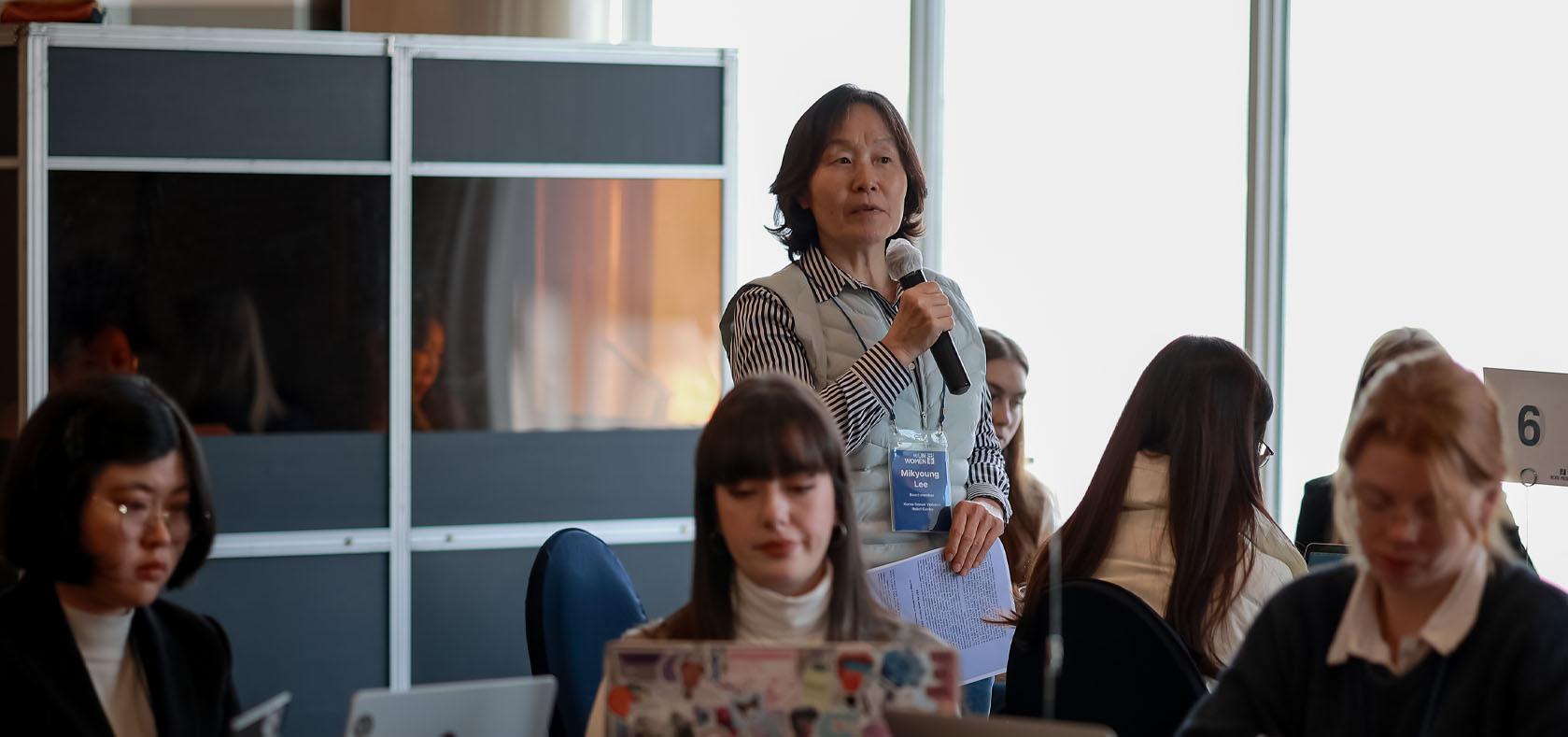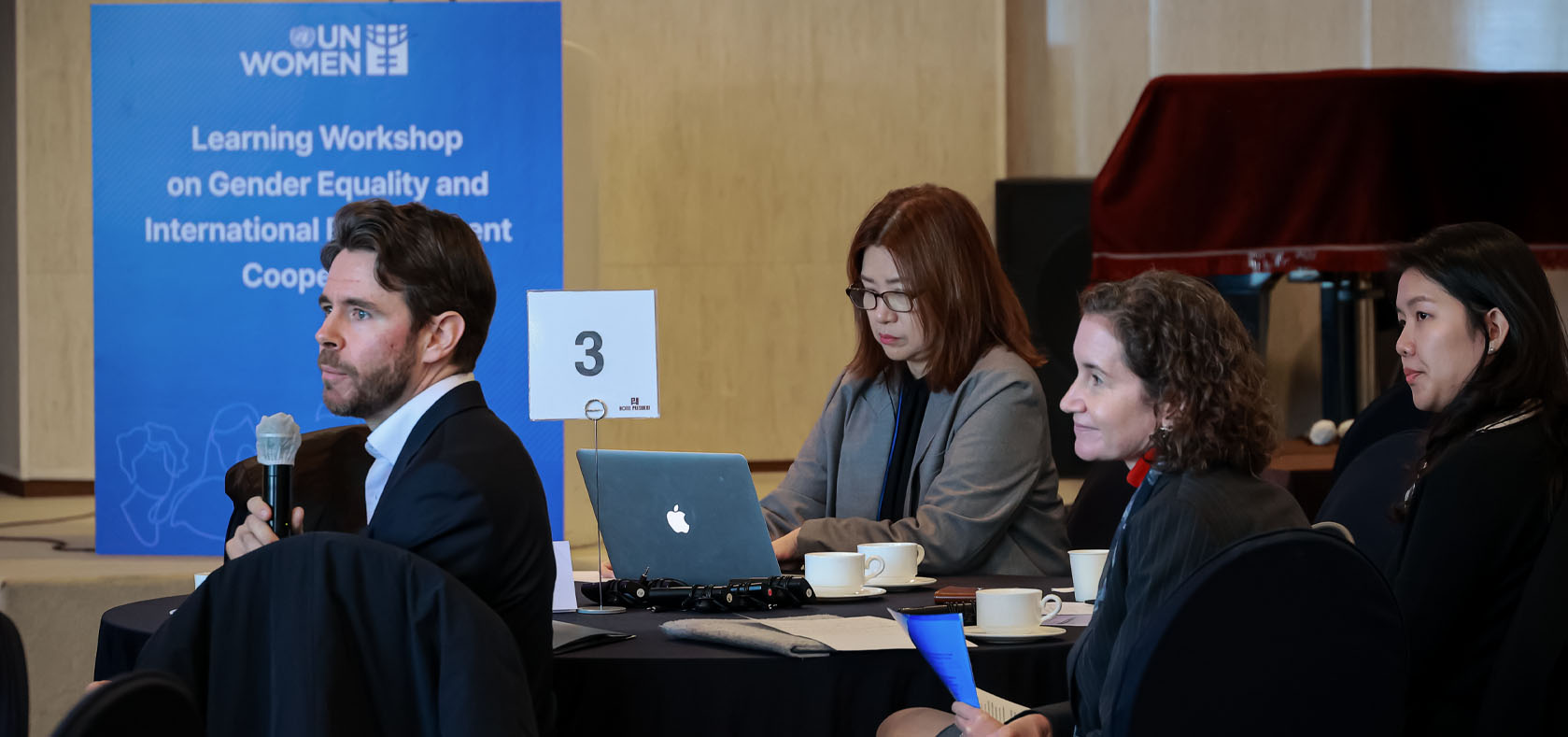English | 한국어
Seoul, Republic of Korea — Experts and government representatives on gender and development cooperation learned how to increase gender-focused official development assistance (ODA) in Asia and the Pacific as they reaffirmed the need for gender mainstreamed ODA at a UN Women-organised workshop.
Hosted by the UN Women Centre of Excellence for Gender Equality, the Learning Workshop on Gender Equality and International Development Cooperation gathered 40 experts and representatives from the public sector and civil society organisations (CSOs) on 5 December 2023.

A participant raises a question to the panel member. Photo: UN Women/Jaeki Kim
“The Republic of Korea’s 2024 ODA budget will increase by more than 40 percent, compared to this year,” said Jeongshim Lee, Director at the UN Women Centre of Excellence for Gender Equality. “This can create a momentum to maximize both the quantity and quality of development financing for gender equality,” she added, emphasising the importance of mainstreaming gender equality in ODA efforts.
Zohra Khan, Senior Policy Advisor at UN Women, pointed out that “ODA has the potential to play a catalytical role through well-directed and strategic investments.” In fact, 46% of bilateral ODA committed to Asia and the Pacific region integrate or mainstream gender equality and women’s empowerment in their objectives. However, only 2% are stand-alone projects with a dedicated objective for gender equality. Compared to global trends, this shows “a more pronounced decrease in the share of gender-focused ODA in the Asia and the Pacific region,” according to Janelle Weissman, Head of External Relations at UN Women Regional Office for Asia and the Pacific.
Experts from the Republic of Korea discussed how to improve the ongoing efforts towards gender-focused ODA. “Korea is committed to gender-focused ODA, yet improvements are needed in terms of establishing a national stand-alone strategy,” said Gee Young Oh, Associate Research Fellow at the Korea Institute for International Economic Policy. “Addressing structural challenges, such as the concentration of short-term ODA projects, can support long-term strategies that are crucial for gender-focused ODA,” said Eun Kyung Kim, Research Fellow at the Korean Women’s Development Institute.

Sam Gendreau-Belanger, Political-Economic Secretary at the Embassy of Canada to the Republic of Korea, Eun Kyung Kim, Research Fellow at Korean Women's Development Institute, Janelle Weissman, Head of External Relations at UN Women Regional Office for Asia and the Pacific, and Gee Young Oh, Associate Research Fellow at Korea Institute for International Economic Policy (from left) engage in a discussion with a participant during the workshop. Photo: UN Women/Jaeki Kim
Canada's Feminist International Assistance Policy (FIAP) was presented as a promising example of an overarching national strategy to advance gender equality in ODA. Through the institutional commitment to integrate and target gender equality in ODA, FIAP also features a sustainable funding source (“Equality Fund”) for women’s organisations by engaging the private sector. Sam Gendreau-Belanger, Political-Economic Secretary at the Embassy of Canada to the Republic of Korea, explained that “innovative financing is essential to influence the deployment of capital so that it ensures a higher level of commitment to a more equitable future for women and girls.”
Zohra Khan also advised that ODA “must align with national gender equality objectives and focus on strengthening country systems, including public financial management systems, while enabling civil society participation” for gender mainstreaming efforts in ODA to be most effective in supporting the Sustainable Development Goals.
See also

